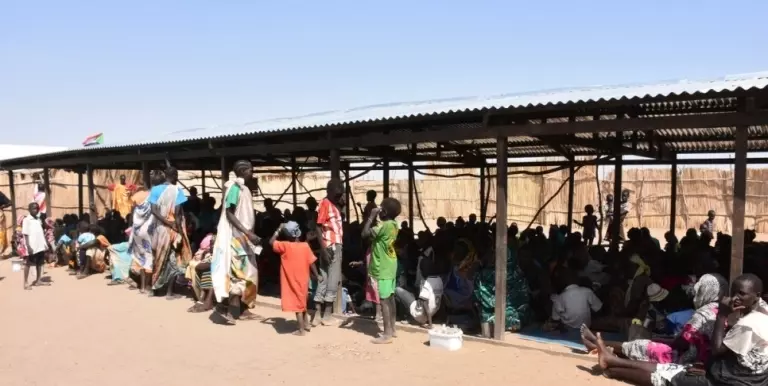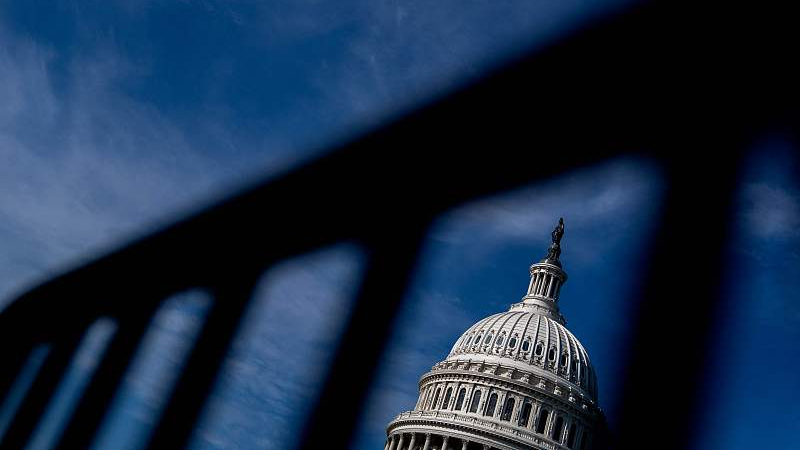It has become impossible not to notice the trend. Whether it is banning the word “gay,” or banning books that contain topics related to human sexuality, or the Supreme Court decision to overturn a woman’s federal right to an abortion, the war on human sexuality and those who are sexually divergent is ramping up on multiple fronts. Even I’ve been a target of this war. Because of my outspoken advocacy for LGBTQ+ youth, I have been labeled a “groomer” by a few figures on the far right.
To be called a “groomer” in our society carries a specific weight. When the far right brands someone with this moniker it is intended to associate them with pedophiles and child abusers. A “groomer” in this context refers to a person who conditions and accustoms children to accept or normalize abuse or exploitation. The term comes from actual instances of child abuse, but recently it has been used against virtually anyone who is LGBTQ+ or an ally. And there has been an uptick in its use since the antigay legislation passed by far-right Florida governor Ron DeSantis. The intent is to terrify and silence those who dissent from a very narrow understanding of human sexuality. And this smear tactic has been employed against a wide spectrum of people, from teachers, to librarians, to healthcare providers, to drag queens.
Real child abuse is a serious and corrosive societal malady that needs to be addressed with empathy and well-funded structures of support and protection. Most of it occurs in the home by someone well known to the child. Much of it has been perpetrated by religious figures, such as priests or pastors. But this recent war on human sexuality has nothing to do with protecting children. In fact, thanks to conservative governance, many of the social supports for victims of abuse have been systematically cut and consistently underfunded or under-staffed. This has one reason: rigid social control.
There are many fronts in this war on human sexuality. Some are in the classroom, others are in the doctor’s office. Whether it is in the censoring of certain words or terms or in the legislation of transgender or women’s healthcare, the far-right is tapping into an old American angst related to ludicrous and impossible notions of purity and deviance. And the anti-porn crusade has appeared to capture that angst in an relatively easy way.
Ever since the dissemination of pornography in the modern era, there have been efforts to censor or ban it completely. Along with religious fundamentalists and evangelicals, there have also be several radical feminists, the late Andrea Dworkin being one, who sought the legal end to the production and distribution of porn. To those particular feminists, the objection was primarily due to the dehumanization and denigration of women rife within the industry. Their argument, although flawed in many ways, was understandable. Misogyny is rife in the porn industry because it is rife in society in general. But the bulk of the anti-porn crusade has been dominated by ultra-conservative evangelicals whose animus toward pornography is based solely on an extremely narrow understanding of human sexuality and its expression. And they wish to impose that worldview on everyone else in society, by any means necessary.

In a society which was founded on rigid social and religious doctrines and mores, this subject was bound to continually cause friction. And not only within religious circles. There are some who consider themselves “material realists” who reject any new understanding of our sexual diversity. But this has all too often become an excuse for bigotry, discrimination and cruelty. It is also a poor application and understanding of how science actually works. The more we discover about a certain thing, the more our understanding of what is “materially real” changes as a result. These “materialists” have often become unwitting allies to racists, anti-Semites and fascists.
A popular conspiracy theory in many white supremacist circles is that the porn industry is a Jewish plot to weaken white men and exploit white women through the normalization of interracial intercourse. The infamous white supremacist David Duke said that Jews “see pornography as a weapon of revenge for real or imagined European wrongs against Jews from the time of Romans to the modern day.” In addition to this, the anti-masturbation campaign, which is apparently a thing, is of a piece with the broader anti-porn crusade. And it, too, has links to white supremacy. In fact, sex panic among racists is no small thing. The Proud Boys, for instance, demand its members eliminate viewing porn completely and limit masturbating to once a month.
The current sex panic must be understood as a legacy of American puritanism. And the supposed protection of white women and children’s “purity” is at its core. There are many examples of how that legacy has played out over the centuries, from the Jim Crow demonization of Black men as “sexual brutes” to the persecution of homosexuals during the Red Scare. In 1977, beauty contest winner and orange juice spokesperson Anita Bryant came right out saying what it was about when she launched the “Save Our Children” campaign, which aimed at discriminating against LGBTQ+ people in housing and employment.
Today, the panic is most often reflected in chatrooms, Bible studies, camp meetings and political rallies. Many have been ensnared by the unhinged QAnon cult which elevates this all to another level of conspiratorial insanity, one where Satanic pedophile rings in the top echelons of the Democratic Party are trafficking children for abuse and to extract a “life-prolonging” chemical known as “adrenochrome.” But it has also become mainstream, with ultra-conservative pundits like Tucker Carlson, Laura Ingraham and Candace Owens using their platforms to peddle odious and misleading tropes and stereotypes about queer people.
It cannot be understated that sexual minorities have bore the brunt of this puritanical cudgel. In connecting with other far-right fascists like Orban from Hungary, Bolsonaro from Brazil, or Putin in Russia, ultra-conservative evangelicals are hoping for wider global movement to purify and purge the world of everything and anyone they consider “sexually deviant or perverse.” It is the reason queer theory evokes such rage among them and galvanizes their animosity. And that brings me to the controversy over Maia Kobabe’s award winning book “Gender Queer.”
“Gender Queer” is an honest and intimate memoir by the author about the journey from adolescence to adulthood. It explores the complex feelings one has as they go through these often difficult periods, but from a queer perspective. Unsurprisingly, it has been cast as sexually explicit or even pornographic by ultra-conservatives because it contained some graphic imagery. It was never intended for young children, but for older teens and young adults who may be struggling with their identity and sexuality. None of this mattered. The rallying cry against the supposed “sexualization of children” has become a popular motto for censoring discussion of human sexual development. And instead of empowering young people with knowledge and agency over their own bodies, it is creating a culture of fear and repression that will undoubtedly lead to even more abuse, exploitation and self-harm.
As an adolescent and teenager, I know I would have appreciated Kobabe’s book as I was traversing those confusing times, especially since I grew up in a religiously conservative environment where human sexuality was seldom discussed. And queer sexuality never addressed at all. I knew I was different from the age of 7, and I wasn’t “groomed” or abused. I had loving parents. But my growth and development would have been so much easier if I had been given access to queer-affirming literature and adults who I could have been open and honest with.
And that is another reason why the smear of “groomer” is so loathsome and infuriating. Queer kids need adults with whom they can be comfortable with, now more than ever. But the current puritanical crusade is creating an atmosphere that will only alienate vulnerable youth from a society which is lurching backward to the dark ages every day. They deserve better. They deserve a safe, affirming and supportive culture provided by queer adults and their allies. The one which I never had.















